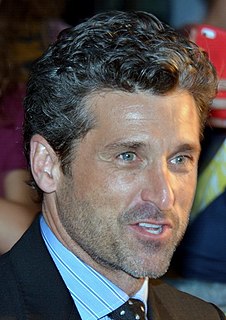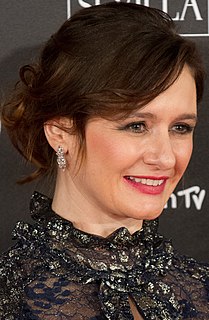A Quote by Michael Haneke
Film is the manipulative medium par excellence. When you think back on the history of film and the 20th century, you see the propaganda that's been made. So there are moral demands on the director to treat the spectators as seriously as he or she takes himself and not to see them merely as victims that can be manipulated to whatever ends they have.
Related Quotes
The fact that you couldn't see Alfred Hitchcock's first film The Mountain Eagle, or that you couldn't see so many of F.W. Murnau's masterpieces, or that you couldn't see so many of Oscar Micheaux's really intriguing race melodramas, made with fierce independent spirit against all odds in '20s and '30s America. That stuff haunted me. They really did bring to life a sense of 20th Century history: cultural history, pop history, gender politics and race politics, socio economic history, all that stuff. It was bracing and instructive.
Film is more than the twentieth-century art. It's another part of the twentieth-century mind. It's the world seen from inside. We've come to a certain point in the history of film. If a thing can be filmed, the film is implied in the thing itself. This is where we are. The twentieth century is on film. You have to ask yourself if there's anything about us more important than the fact that we're constantly on film, constantly watching ourselves.
You do the one film that you think is terrible, but it's a big studio film and you hope you'll get another job because of it, because blah blah blah, whatever it is. You know that you hate it, you just couldn't care less if it got made because it's not something in a million years you'd go and see yourself. And it ends up being shite and you just knew it was shite to begin with, and it doesn't do you any favors at all if someone thought you were in another shite film. So I decided it doesn't get me anywhere being cynical. It's not that I want to be.
Film’s thought of as a director’s medium because the director creates the end product that appears on the screen. It’s that stupid auteur theory again, that the director is the author of the film. But what does the director shoot-the telephone book? Writers became much more important when sound came in, but they’ve had to put up a valiant fight to get the credit they deserve.
A war film can be propaganda and they're very valuable as propaganda, as we realized in Britain in the Second World War. Film as propaganda is a very valuable tool. It can also demonize, which is the dangerous side of a war film as propaganda. But there are war films that are not propaganda. It's just saying 'This is what it's like.' For 99 percent of us we don't know what it's like. We have no idea. So to reveal that to the audience is powerful.





































